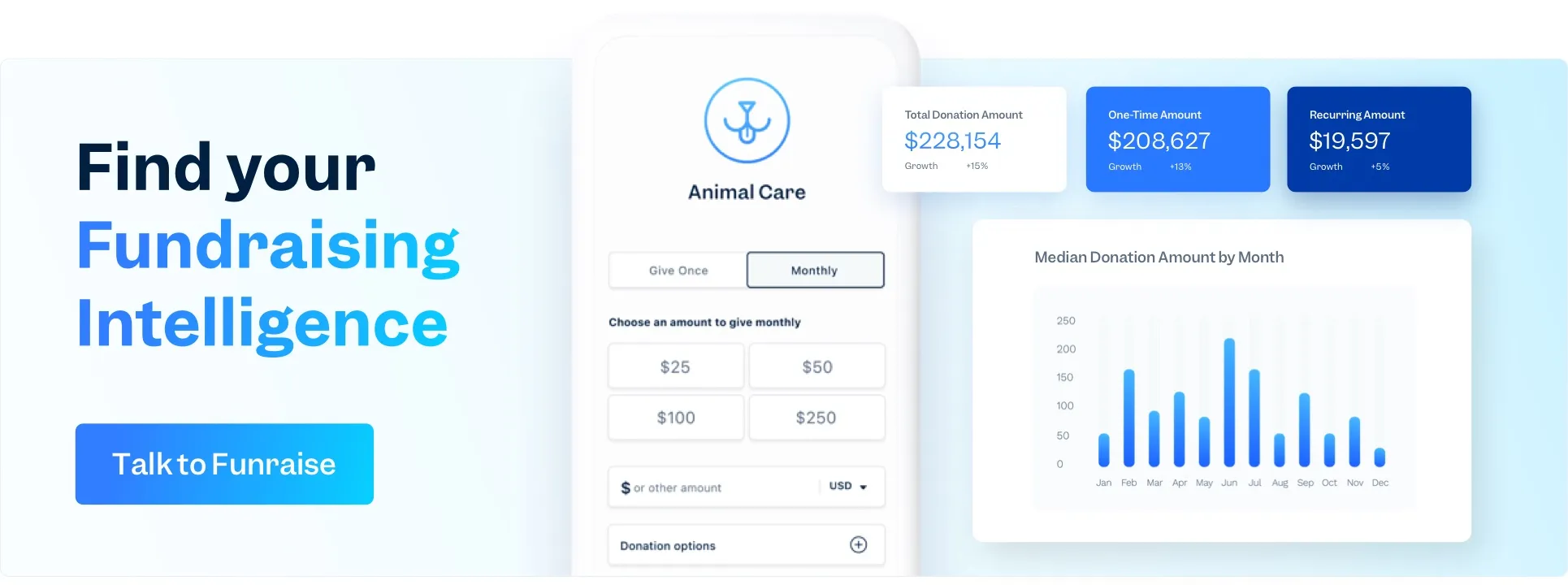It’s only 8:00 am, and you’ve already refreshed the NY Times homepage six times. Welcome to the club. These days, it can feel like the world is on fire—and, sometimes, it actually is. Some of us cope by sharing articles on Facebook; others by donating to whatever cause is in the headlines. As a nonprofit, it’s easy to fight for your cause and voice the values associated with it. But it’s harder to know when to speak up about other important topics.
Generally speaking, advocacy is a social good. It’s just about understanding when and how to speak out. So the question becomes: How do you know when to say something? And, in that vein, when does it become a responsibility? When is it authentic and when is it performative? How do you even know the best way to support a cause you believe in?
While there’s no single answer to these (increasingly) nuanced questions, it’s important to consider them carefully when you’re raising your nonprofit’s voice on social issues. Let’s break it down and make some meaningful, totally appropriate change.
First, W.A.I.T.
You read the headlines, you see the outpouring of opinions and crowdfunds on social media. You wonder if your nonprofit should put out a statement or start a fundraiser or sign up staff members to volunteer for a day. Or maybe you shouldn’t do a thing. Before you call a meeting or draft a Facebook post, ask yourself to W.A.I.T.—that is, ask yourself, “Why Am I Talking?”
While finding the origin of this awesome acronym led us on an internet goose chase, you can find plenty of TED talks and articles on how it applies on a day-to-day basis. But W.A.I.T. is also a useful tool when it comes to speaking out publicly on a cause. Because here’s the thing: Not everyone needs to hear what you have to say. And this is true in your daily life and in your life as a nonprofiteer. Thinking through why you’re saying something allows you to take a beat and consider whether your speaking out will actually add value. So, the next time you’re tempted to shout your thoughts or opinions from the rooftop, pause and ask yourself:
- Will what I’m about to say have a meaningful impact?
- Am I uniquely positioned to add to the discussion?
- What’s my intention?
- Am I just speaking up to show that I’m listening in?
Then, ask yourself one more question. This one’s especially important when it comes to causes that everyone is talking about:
Does my silence say more than my words would?
Once you’ve answered the above, you’ll know what to do. Solidarity and allyship are crucial for nonprofits—we’re a community, not competitors. But in a community, there’s often someone else who can do a better job than you. Give them the space to speak first and ask how you can lend a hand.
When It’s Okay to Stay Quiet
While it’s helpful to have a framework for knowing when and when not to talk, there are also some specific occasions when you should keep it to yourself. Honestly evaluate your nonprofit’s level of commitment and availability of resources before speaking up. After all, there are always causes that need support.
It could impact your tax-exempt status.
First, because you’re a nonprofit, there’s a key caveat to all advocacy work: As a 501(c)(3) organization, there are limitations on your political campaign activity as well as encouraging your members to support or oppose certain legislation. This doesn’t mean you can’t advocate for your beliefs—quite the opposite. Just be aware of what’s legally kosher. You can’t endorse political candidates, and while some lobbying is okay, it shouldn’t be a major expense. Just keep all that in the back of your mind, and you should be fine.
You don’t intend to follow up.
Plenty of companies issued statements about DEI and Black Lives Matter in 2020, and a lot of them are still 90% white and 100% done with the issue. If you speak out, an issue becomes part of the fabric of your nonprofit—and you need to stick with it. After all, even if a headline disappears the next day, we’re still waiting on the whole “world peace” thing. Develop a framework for your communication strategy around the issue. Weave that issue into your programs. Partner with organizations doing on-the-ground work. Set reminders to check in and update your supporters every few months. If all that sounds like too much, that’s fine! Just be honest with yourself about your level of commitment.
You’ve been speaking up a lot lately.
When you speak out on a social cause or issue, you want to do it thoughtfully and with conviction, and you want to put actions behind your words. As we’ve discussed, it’s never one and done. If you’ve been sending out regular statements on various issues over the last few months, take a break. You don’t have to speak out on every single thing. Your nonprofit’s mission should still be your focal point, and you risk exhausting yourself, your staff, and your supporters.
You’re under-resourced.
Speaking up costs money. It also costs time and energy. Pretty much no nonprofit is rolling in resources—there are never enough dollars nor enough hours. If your entire staff is working late and you’re not paying them at least market rate for their hard work, don’t add more work to anyone’s plate. You have to put on your mask before you help anyone else, right? So, focus on meeting your nonprofit’s needs for now.
When You’re Ready to Talk
If you’ve asked yourself all the right questions and want to speak up, our key to weighing in can be boiled down to Amplification, Awareness, and Action. Here are a few additional tips to keep in mind as you craft a statement.
- Amplify the voices of experience. Now's the time to uplift those who are most affected or have the greatest expertise in whatever you're talking about. Boost their signals!
- Consider who makes the statement. Generally, you want your statement to come from someone high up. That being said, if you’re commenting on abortion rights, maybe your white, male ED isn’t the one who should be saying something. And if it’s racial justice, samesies.
- Make a plan. Don’t just type up an email and hit send. Talk to everyone at your organization. Get input from those directly affected by the issue. Know how you’re going to continue to support this cause and speak to this issue going forward.
- Recognize your role in spreading awareness. Whether you like it or not, people are listening to what you're saying. If you're talking, you have a responsibility to spread the truth.
- Differentiate your messaging. When it comes to for-profit brands making statements on social issues, we remember those that were creative. So get your thought leader cap on and sharpen your colored pencils—this is a time to be bold, memorable, and meaningful.
- Make it personal and relatable. Our society is global and our world is interconnected. By making your statement personal—whether it’s sharing a story or relating it to your mission—you’ll help your supporters connect to it.
- Provide actionable steps. Once you let your supporters know where you stand, make sure you let them know how to get involved. If you’re sharing your views with your community, you’re inviting their input and implicitly asking for their help. Just like you want to make your donation process as seamless as possible, help them get involved in as few clicks as possible.
- Don't center your organization. Since, presumably, this is a crisis or cause that's bigger than your organization or mission, shine the spotlight of your comms on those who are being affected. Stating your point of view and how distraught you are and how you're planning to help just tells everyone else that you're most concerned with yourself. Your organization should be sitting in the back row of this statement.
Actions Speak Loudest of All
Often, simply issuing a statement in your newsletter or on social media will ring hollow. If you want to communicate your stance on an issue in a meaningful way, the best thing you can do is to actually do something—or, even better, encourage your supporters to do so. Here are some ways to speak up that inspire action. And while some of them are quiet, they’re sure to have an impact.
- Allow a group or less-resourced nonprofit working directly with the cause to use your office space for meetings or your printer for brochures. You could ask to have one of your staff members sit in to stay informed. Share whatever resources you can.
- Write letters or sign petitions and encourage your supporters to do the same.
- Share links where your supporters can donate to directly support the cause at hand.
- Host a Q&A with someone involved with the cause and urge your supporters to attend.
- Organize your supporters to lobby, host a donation drive, or otherwise get involved in the cause in a way that adds tangible value.
- Pay your staff to volunteer for a day. (Note: do not ask them to volunteer on a day off. Just. Don’t. Do it.)
- Organize a coalition of nonprofits to advocate on behalf of the cause.
Examples of Nonprofits Speaking Out
After all that, you might be wondering what it looks like when a nonprofit speaks up authentically and memorably on a social cause. Here are a few examples to inspire you to raise your nonprofit’s voice in a thoughtful, impactful way.
Hollywood Theatre

Portland’s historic Hollywood Theatre, a nonprofit movie house, issued a powerful statement in support of BLM and the local small business community.
NARAL Pro-choice

NARAL supported Judge Ketanji Brown Jackson by featuring actions over statements above the fold on their website.
Global Heritage Fund

Global Heritage Fund’s statement on the invasion in Ukraine mentioned their colleagues and how cultural institutions have been impacted by the crisis.
Speaking Up about Social Causes: Key Takeaways
As a mission-driven nonprofit in an ever-more complex world, it’s crucial to use your voice to effect change. That being said, it’s not always your time to speak. Here’s a quick overview of what you should keep in mind when it comes to speaking out.
- As a nonprofit, you have a wide audience and a rare opportunity to influence their perspectives and actions. Because of that, it’s important to speak up on certain topics and issues, even if they’re not directly related to your mission.
- You don’t need to speak up about every issue. Before you issue a statement, pause and consider why you’re speaking in the first place and whether another organization is better suited to take the spotlight.
- W.A.I.T. (Why Am I Talking?) is a helpful acronym to navigate when to speak and when to stay quiet, both when it comes to your nonprofit and when it comes to day-to-day interactions.
- Times when it’s better to stay quiet include when it could negatively impact your tax-exempt status, when you’re just saying something so people will know you’re aware of it, and when you’re under-resourced.
- If the crisis or cause isn't about you, your statement shouldn't be about you, either, even indirectly. Your role is amplification, awareness, and action.
- Actions speak louder than words, so consider when you’d be better off taking action in support of a cause rather than issuing a statement.
- No issue is one and done, so plan your strategy accordingly. If you make a statement, you need to follow up in the months—and years—ahead.































.webp)
.webp)











.webp)
.webp)

.webp)
.webp)
.webp)




